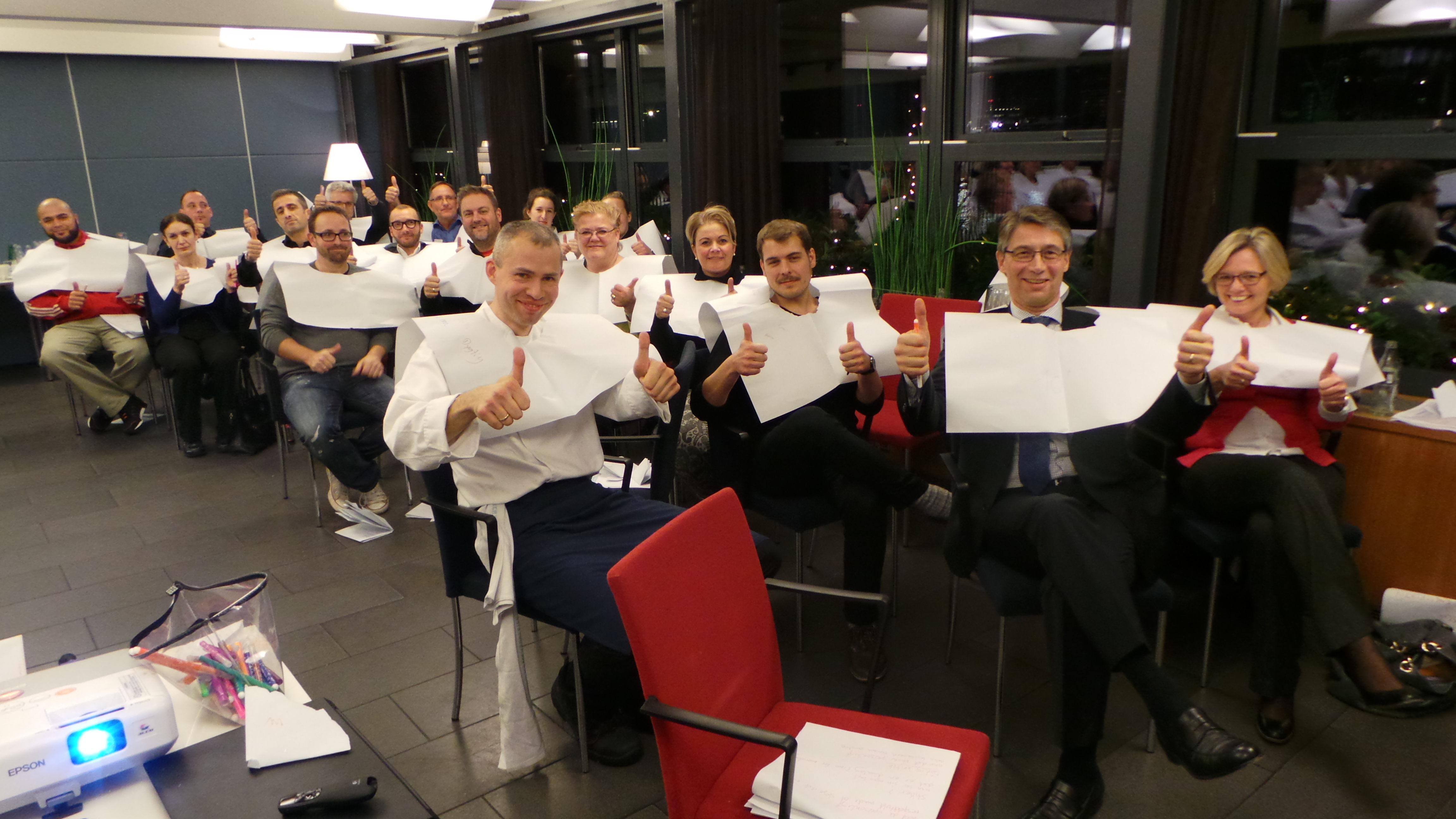
Praising people at work is great, but hard. It takes some practice to do well and doesn’t come naturally to many people.
So ages ago we developed an exercise to help teams praise each other and it’s our absolute favorite thing to do in our workshops. And now we’ve put the instructions online, so you can do it with your team.
We have done this hundreds of times and it never fails. It takes about 30 minutes and works in groups of 10 people and upwards. We’ve done it with hundreds of participants, but typically we’ll do it with one department or team, so about 10-50 people.
You will need a flip-over chart and a marker pen for each person. Here’s how to do it, step by step.
1: Give each person a marker pen and a flip-over chart.
2: Ask each person to tear a whole in the middle of the sheet of paper and then put it on like a poncho. The easiest way is to fold the chart into quarters and tear off one corner.
3: Once everyone is wearing their poncho, give people the following instructions: “Go around and write on the backs of other people. Write the stuff you like and appreciate about the person. The stuff they do well and the qualities they have. Write on as many people as possible, write as much as possible but only write it if you mean it.”
4: Then give people time to write on each other. Groups up to 20 people will need about 10 minutes for the actual writing, larger groups may need more time.
 5:
5: Once people have finished writing on each other, give them these instructions: “I bet you’re all wondering what people have been writing on you. Please keep your ponchos on and sit down. Now for the next minute, you’re not allowed to speak. You’re only allowed to read what it says on your poncho and to enjoy it. Please, take them off and read them now”.
6: Give them a minute or so to read their ponchos.
7: Ask them to turn to their neighbor and discuss what it says on their poncho. Did anything surprise them? What do they especially appreciate?
8: End the exercise and thank them for participating.
We’ve done this exercise with leaders, employees, government workers, school teachers, school kids, social workers, secretaries, lab workers, prison guards, kitchen staff and many, many other groups and it works every single time.
Participants especially enjoy that:
- It’s easy to give praise.
- It’s easy to receive praise – you don’t have to respond to it, only to enjoy it.
- They learn what people appreciate about you.
- People get praised both for what they do but also for who they are.
- They can save their ponchos and take them out and read them when the need a boost.
My favorite part of the poncho exercise is when you get chains of 5-10 people, each writing on the back of the next one.
Your take
What do you think – would this work in your workplace? Have you tried something similar already? How did it work?
Related posts



 Just found this great quote from Richard Branson, founder and CEO of Virgin.
Just found this great quote from Richard Branson, founder and CEO of Virgin. Yesterday I spoke in Tel Aviv at the national HR Magazine conference and today I’m flying to Las Vegas to visit Zappos (one of the world’s happiest workplaces).
Yesterday I spoke in Tel Aviv at the national HR Magazine conference and today I’m flying to Las Vegas to visit Zappos (one of the world’s happiest workplaces).


 Danish workers have a tradition of playing small Christmas pranks on each other throughout December, based on the old folk belief in
Danish workers have a tradition of playing small Christmas pranks on each other throughout December, based on the old folk belief in 